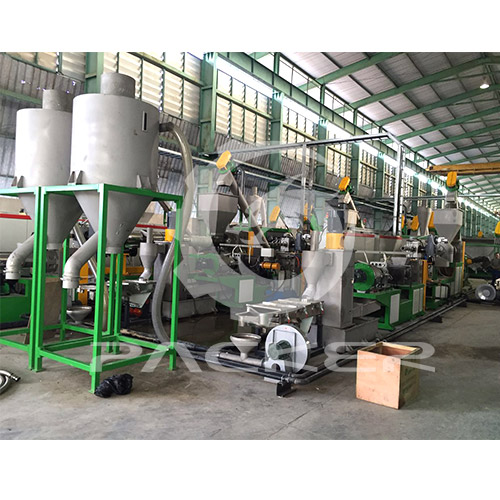Things You Need to Know About Plastic Granulator
2024-01-23
A plastic granulator is a machine designed to reduce plastic waste into smaller, more manageable pieces or granules. Here are some key things you need to know about plastic granulators:

1. Function:
- The primary function of a plastic granulator is to shred and granulate plastic materials into smaller pieces. This facilitates easier handling, storage, and recycling of plastic waste.
2. Types of Plastic Granulators:
- There are different types of plastic granulators, including:
- Knife Mills: Use rotating knives to cut plastic into small pieces.
- Cutter-Built Granulators: Feature a cutting chamber with fixed and rotating knives.
- Rotor and Stator Mills: Utilize a rotor with blades and a stator with screen openings for size reduction.
- Scissor-Cut Granulators: Use scissor-like cutting action for efficient granulation.
3. Size Reduction:
- Plastic granulators reduce the size of plastic waste by cutting or shearing it into smaller particles or granules. The size of the granules can be adjusted based on the machine settings.
4. Applications:
- Plastic granulators are used in various industries, including plastics recycling, manufacturing, and waste management. They are crucial for processing plastic scrap and waste.
5. Material Compatibility:
- Plastic granulators can handle a wide range of plastic materials, including but not limited to polyethylene (PE), polypropylene (PP), polyvinyl chloride (PVC), polystyrene (PS), and other thermoplastics.
6. Recycling:
- Plastic granulators play a key role in plastic recycling. They transform post-consumer or post-industrial plastic waste into granules that can be used as raw material for manufacturing new plastic products.
7. Granule Quality:
- The quality of the granules produced by a plastic granulator is influenced by factors such as the design of the cutting chamber, the type of blades used, and the machine settings. High-quality granules are essential for manufacturing new products.
8. Safety Features:
- Plastic granulators are equipped with safety features to protect operators. These may include emergency stop buttons, safety interlocks, and safety guards to prevent access to moving parts.
9. Maintenance:
- Regular maintenance is essential to ensure the proper functioning of a plastic granulator. This may include blade sharpening or replacement, lubrication, and inspection of components.
10. Environmental Impact:
- Plastic granulators contribute to the reduction of environmental impact by promoting plastic recycling. By breaking down plastic waste into granules, these machines support a more sustainable approach to plastic use.
11. Regulatory Compliance:
- When using plastic granulators for recycling, it's important to comply with environmental regulations and standards. Adhering to proper waste management practices ensures responsible disposal and recycling of plastic materials.
Understanding the operation, maintenance, and safety considerations of plastic granulators is crucial for efficient plastic waste processing and recycling in various industries.


